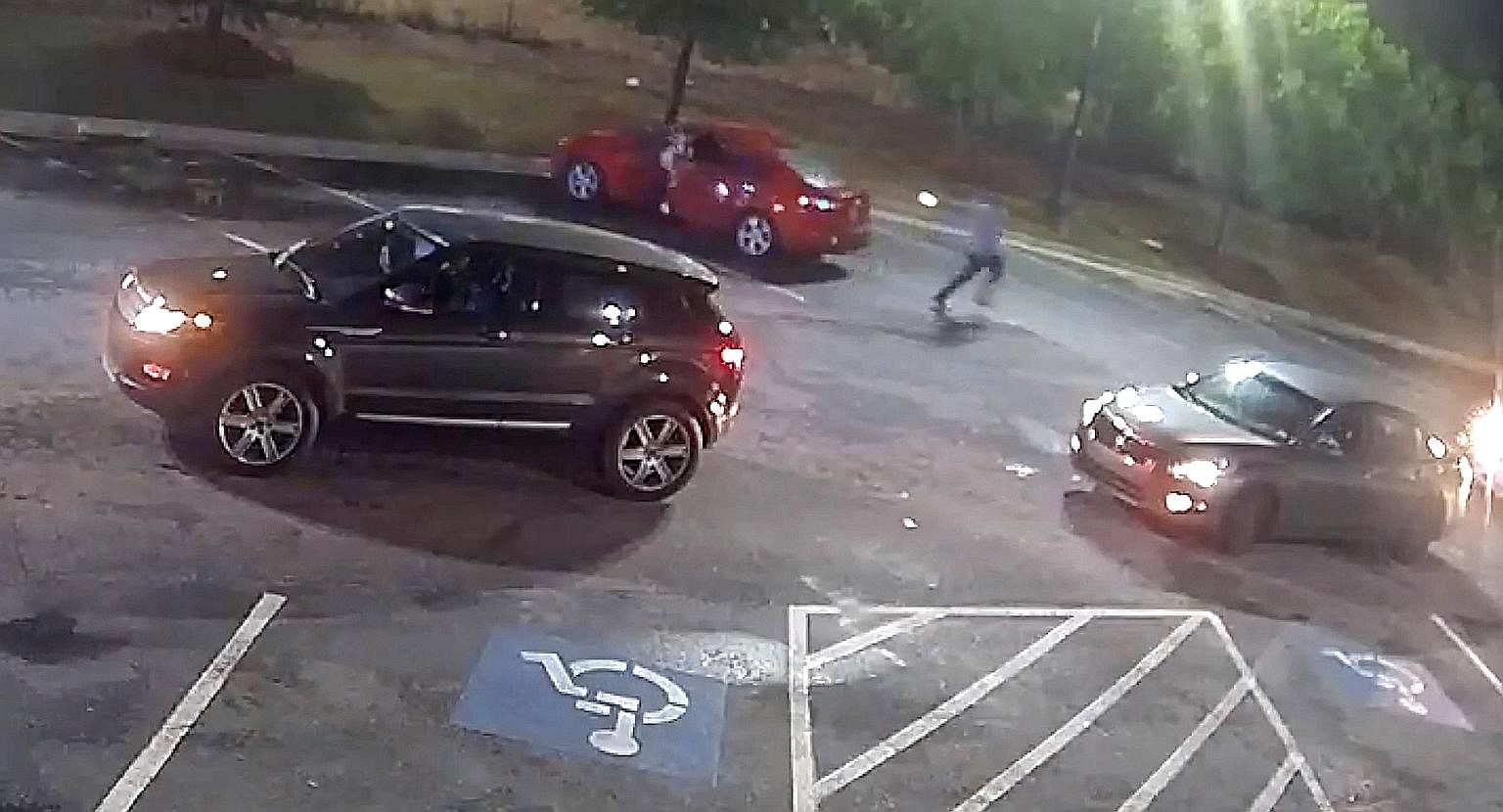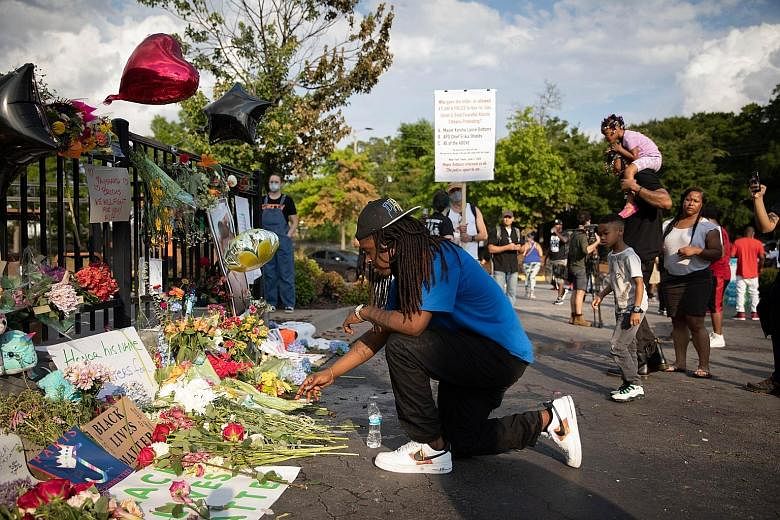ATLANTA (Georgia) • The swift decision on Sunday to fire the white Atlanta policeman who shot and killed a black motorist has intensified a growing re-examination of the US police's use of deadly force, challenging long-standing principles that have given law enforcement officers wide latitude in cases where encounters lead to deaths.
Although laws vary by state, US police officers are generally allowed to use deadly force when they reasonably believe their lives or that of others are in danger, a legal standard meant to give the authorities leeway to make split-second life-or-death decisions without hesitation or fear of prosecution.
But in the wake of years of growing anger over the deaths of African Americans at the hands of the police, and particularly after the killing of Mr George Floyd in Minneapolis last month, those guiding principles are now falling away with astonishing rapidity.
"In the last two weeks, I have seen more legislators - federal and state legislators - talking about amending use of force laws, and I've seen more laws proposed than I've ever seen before," said Professor Seth Stoughton, a law expert at the University of South Carolina who studies use-of-force policies.
"There is a much broader bipartisan recognition that... something needs to change."
Within 24 hours of the Atlanta shooting death of Mr Rayshard Brooks, the city's police chief had resigned and the officer who fired the fatal shot had been dismissed.
According to video footage, Mr Brooks struggled with two policemen before taking one of the officer's Tasers. An officer shot him as he fled. Police also released additional video showing him and the officers speaking calmly for over 25 minutes before the altercation.
The Fulton County Medical Examiner's Office ruled on Sunday that his death was a homicide, saying he was shot twice in the back, causing "organ injuries and blood loss".
Mr Brooks' shooting death took place less than three weeks after Mr Floyd's killing unleashed a torrent of protests across the nation against police brutality.
"I think people are fed up," said Prof Geoffrey Alpert, a criminology expert at the University of South Carolina.
"We're starting to see a lot more evidence that is either going to allow the officers the justification to do what they did or condemn and sometimes convict them."

Advocates for the police argue that officers are now being left to navigate a difficult landscape, believing they do not have the support of elected officials when responding to dangerous situations.
"It doesn't matter if we're right or wrong," said Mr Vincent Champion, the south-east regional director for the International Brotherhood of Police Officers.
The capital Washington recently passed a new use of force provision in emergency legislation that will be valid for 90 days, but could eventually become permanent.
It stipulates that a jury, in a criminal case against a police officer, must not only focus on whether the officer had a "belief" that the use of force was reasonable, but also find that his actions were reasonable.
This focus on "reasonable actions" is a seemingly small but potentially important shift in criminal use-of-force cases that was inspired by George Washington University law professor Cynthia Lee, who laid out the idea in a 2018 law review article.
The Washington law also requires juries to consider whether an officer had engaged in deescalation measures, and whether his preceding conduct raised the risk of a deadly confrontation.
"Even though law reform may not provide all the answers, it can help shift the culture," Prof Lee said on Sunday. "We want officers to be more careful when they're in these tense situations and we want them to see people as human beings instead of enemies."
NYTIMES


